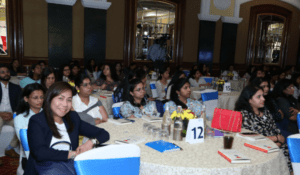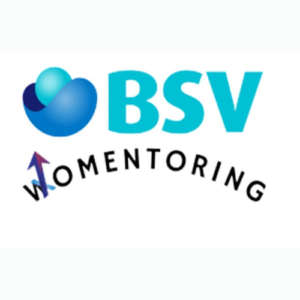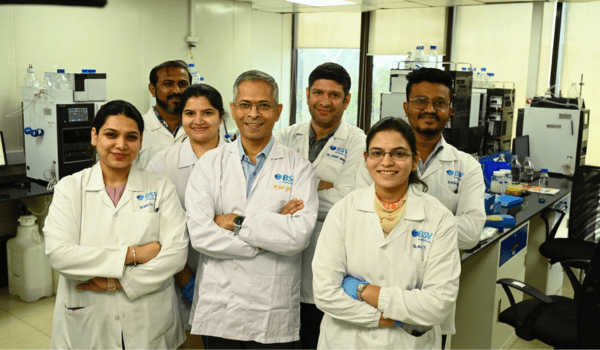Introducing a comprehensive mentoring programme called ‘Wometoring’, which is aimed at empowering women and promoting gender diversity within the organisation, Bharat Serums & Vaccines has embarked on a truly transformative journey.
The programme, launched in April of this year, focuses on addressing the underrepresentation of women in leadership positions by providing targeted support and guidance. The company began considering this initiative prior to its launch, and after completing the registration process, it is now preparing for implementation starting in June 2023.
The programme is designed to span four phases, taking place over the course of a year, with each phase typically aligning with a quarter. This timeline serves as a reference for the programme’s implementation over the coming year.
When it comes to any mentoring programme, challenges and potential obstacles are inevitable. Sustaining such a programme requires a rigorous approach. Nilesh Kulkarni, CHRO, Bharat Serums and Vaccines, says, “We have successfully established a solid structure for the programme and garnered significant buy-in and commitment from leadership. Moving forward, it is crucial that we diligently follow through to ensure the programme’s success, as without such dedication, we may not achieve the desired results.”
So what makes this programme unique compared to others in different organisations and institutions?
Focus on underrepresentation of women
Well, this particular programme stands out for its specific focus on addressing the underrepresentation of women in leadership roles within the industry. By targeting gender diversity and creating a platform for women to advance from entry- and mid-level positions to senior positions, it aims to address this challenge within the company.
Understanding of women’s needs
As a women’s health company, Bharat Serums & Vaccines has a unique perspective and understanding of women’s needs and experiences. This enables it to tailor the programme to provide the necessary support mechanisms and instil confidence among participants.
Women’s growth
Talking about challenges, Kulkarni says that the first major challenge they face is the underrepresentation of women in leadership roles, despite their presence in entry- and mid-level positions. “To address this issue, we recognised the need to establish a platform or framework that fosters the development and growth of women, enabling them to progress to senior and mid-level positions directly from the frontline. This is one of our primary objectives,” says Kulkarni.
“We have successfully established a solid structure for the programme and garnered significant buy-in and commitment from leadership. Moving forward, it is crucial that we diligently follow through to ensure the programme’s success, as without such dedication, we may not achieve the desired results.”
Nilesh Kulkarni, CHRO, Bharat Serums and Vaccines
Promotion of diversity
Kulkarni believes that diversity contributes to enhanced business delivery and innovation. He explains that gender diversity, in particular, poses a significant challenge in our country and many others. Therefore, alongside promoting various forms of diversity, the company has chosen to concentrate on gender diversity. This is another key objective of the initiative.
Prioritisation of women’s well-being
As a women’s health company, we recognise the importance of having individuals who possess a deep understanding of women’s needs and experiences. By prioritising gender diversity, we aim to have a workforce that can better empathise with and cater to the movements and well-being of women. This flagship programme, which we believe is among the first of its kind in our industry (though similar initiatives may exist in other sectors), aligns with our vision and addresses the feedback we have received,” states Kulkarni.
Conversations and a book
There are two aspects of the programme that need to be highlighted. “First, during the programme launch, we had some inspiring conversations that set the tone for the initiative,” reveals Kulkarni. Notable participants included Shweta Jalan, head of India, Advent, the private equity firm that owns Bharat Serums and Vaccines equity. Anita Bhogle, author and a big champion of DEI, also joined the discussion. “These conversations provided practical insights into the real-life challenges women face in the corporate world,” he shares.
During the launch, they had a diverse panel of inspiring women, with Monica Chowdhary, a startup founder with extensive experience in the pharma industry, and Poornima Guyquad, a senior-ranking IPS officer besides many more inspiring women role models leading this panel. Their perspectives and experiences added enthusiasm and showcased the potential for success and change in different fields.

Second, the company is planning to capture and share the experiences of women who participate in the programme through a coffee table book. This book, which will be unveiled at the end of the year, will showcase the real-time experiences and success stories of women who have been mentored during the programme.
Overall, these conversations and the forthcoming coffee table book will serve as a strong business case for empowering women in the workforce and demonstrate the positive impact of mentoring.
As of now, approximately 250 women have joined the mentor-mentee programme. More than 60 per cent of them have already registered, and it is anticipated that the programme will gain further traction over time.
Kulkarni says, “The activities and success of the programme serve as a catalyst for attracting more participants. We are committed to promoting women, and thus, we are collecting data on the success rate of the programme to monitor its effectiveness. Our ultimate goal is to witness more women advancing in their careers.”
However, Kulkarni enthusiastically points out that one notable outcome of the programme is the increase in confidence levels among participants. “Women often tend to be more cautious when considering higher responsibilities, and we aim to instil confidence in them and provide the necessary support mechanisms. Specifically, we have set a target of recruiting at least 30 per cent of our current QA team through this initiative,” says Kulkarni.
In terms of future plans, the intention of this programme is to maintain consistent implementation. The company understands that consistency is crucial for the success of any initiative. According to Kulkarni, over the next two years, they will closely monitor the progress and outcomes of the programme to assess its effectiveness. Based on the insights gained, they will further consider any necessary tweaks or modifications to enhance its impact.
 The unique selling point of this programme, according to Kulkarni, lies in its carefully-crafted design. One distinctive aspect is the structured and detailed approach adopted throughout the programme’s four phases.
The unique selling point of this programme, according to Kulkarni, lies in its carefully-crafted design. One distinctive aspect is the structured and detailed approach adopted throughout the programme’s four phases.
Phase I — Building trust
This phase focuses on establishing trust and rapport between mentors and mentees. It involves activities designed to foster a strong foundation for the mentoring relationship.
Phase II— Skill development
In this phase, participants engage in skill-building exercises and workshops tailored to enhance leadership capabilities, communication skills and other key competencies necessary for career advancement.
Phase III — Career progression
This phase aims to support mentees in their career growth by providing guidance on navigating professional challenges, leveraging opportunities and developing strategies for advancement.
Phase IV — Sustaining momentum
The final phase focuses on sustaining the progress achieved throughout the programme. Mentors and mentees collaborate on long-term career plans, ongoing support mechanisms and strategies for continued growth.
This thoughtfully-designed structure allows for a comprehensive and progressive development journey, addressing the unique needs and challenges faced by women in their career progression. By combining trust-building, skill development, career guidance and sustained support, the programme offers a holistic approach to empowering women and promoting their advancement within our organisation.
It is important to highlight that this programme extends beyond India and operates globally. In the Philippines, where they already have over 50 per cent women in their workforce, the programme has generated excitement and interest among employees.
The most important resource for building a pool of good mentors in this programme is investing in the development of mentorship skills. While many may believe they can be effective mentors, possessing the necessary skills is not always guaranteed. Therefore, Kulkarni believes in and prioritises providing ample support and resources to enhance mentorship capabilities.
Even though it is too early to provide specific numbers at this stage, the company is anticipating a positive response and expects many women to participate. Kulkarni says, “Our challenges are not limited to the corporate office or research and development (R&D); they extend to areas such as manufacturing and sales, which have the largest number of employees. Encouraging women to pursue careers in these fields poses specific difficulties in our country.”





1 Comment
Excellent Initiative. I am sure many pharma companies will start follwoing it.